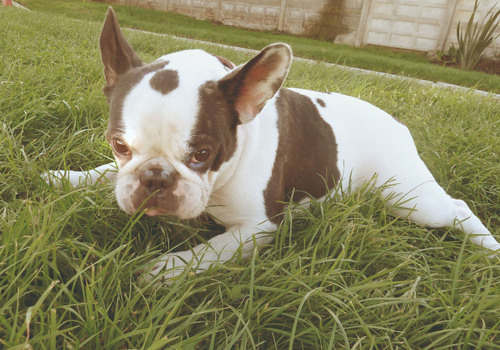The French Bulldog originated in 19th Century Nottingham, England, where lace makers decided to make a smaller, miniature, lap version of the English Bulldog that was referred to as a "toy" bulldog.
In the 1860s, when the Industrial Revolution drove the craftsmen to France, they took their dogs with them. The toy bulldogs became popular in France and were given the name the "French Bulldog."
The breed eventually made its way back to England for dog shows. The Brits were not happy with the name "French" given to a dog that was originally from England, however, the name "French Bulldog" stuck.












